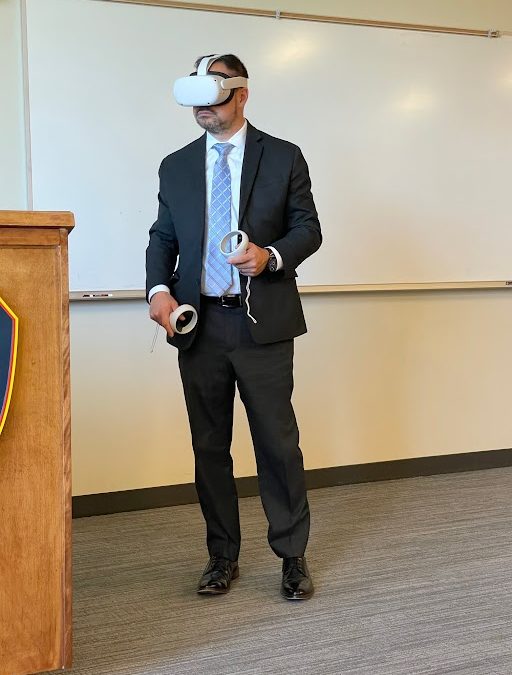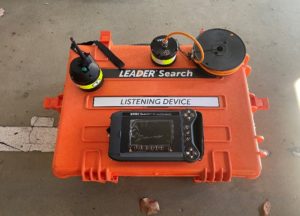In response to topics covered at the 2021 Maryland-National Capital Region Emergency Response System (MDERS) Virtual Symposium, the Training and Exercise Team received many requests for follow up presentations. These requests resulted in the creation of the 2021-2022 MDERS Webinar Series.
One of the requests from the MDERS stakeholders was for a follow-on conversation that elaborated in greater detail topics discussed during the 2021 MDERS Symposium. In response, on October 6th, 2021, MDERS hosted the Leveraging Open-Source Intelligence for Preventative Public Safety Purposes webinar in partnership with the New York Police Department (NYPD) Intelligence Bureau’s (IB) Global Trends & Developments Team. The event was attended by 37 stakeholders, representing 25 agencies and numerous disciplines throughout the NCR and the State of Maryland.
 NYPD Intelligence Analysts briefed National Capital Region (NCR) stakeholders on current threat assessments for global terrorism and mass violence. They also expanded on topics including racially and ethnically motivated violent extremism, leveraging intelligence by law enforcement, and developing event threat assessments. NYPD utilized recent cases studies, including the January 6 events at the Capitol, to further assess how these concepts should be applied to real-world events.
NYPD Intelligence Analysts briefed National Capital Region (NCR) stakeholders on current threat assessments for global terrorism and mass violence. They also expanded on topics including racially and ethnically motivated violent extremism, leveraging intelligence by law enforcement, and developing event threat assessments. NYPD utilized recent cases studies, including the January 6 events at the Capitol, to further assess how these concepts should be applied to real-world events.
MDERS collected evaluations from the participants at the end of the webinar to assess the content discussed and to inform future training opportunities. Stakeholder comments from the Leveraging Open-Source Intelligence for Preventative Public Safety Purposes webinar include:
- “I learned about catalytic events and how these events may motivate a malicious actor, who may or may not have pre-existing ties to an extremists’ group or ideology.”
- “The most valuable part of this training was learning about the available tools for public and private sector, about the catalytic events vs. reactive violence and about the different extremist groups.”
- “Each presentation flowed very well into the next presenter and was all relevant without the speaker’s content duplicating. I thought it was great.”
- “The most valuable part of this training was learning about the coordination and facilitation of the of sharing of open-source intelligence with the appropriate agencies to assist them with their missions, how to utilize appropriate intelligence information in planning efforts, and how to leverage available tools to assist public safety agencies carry out their mission.”
MDERS will host the second webinar in this training series in early 2022, which will focus on cyber threats and their impacts to homeland security and public safety.
For more information on future webinars and other training opportunities, please contact Hannah Thomas at Hannah.Thomas1@maryland.gov.





